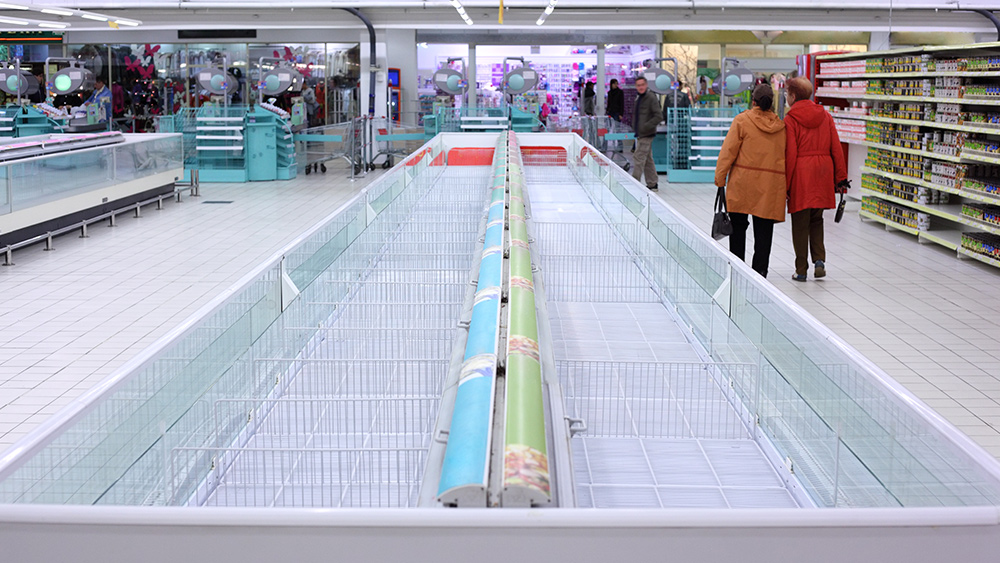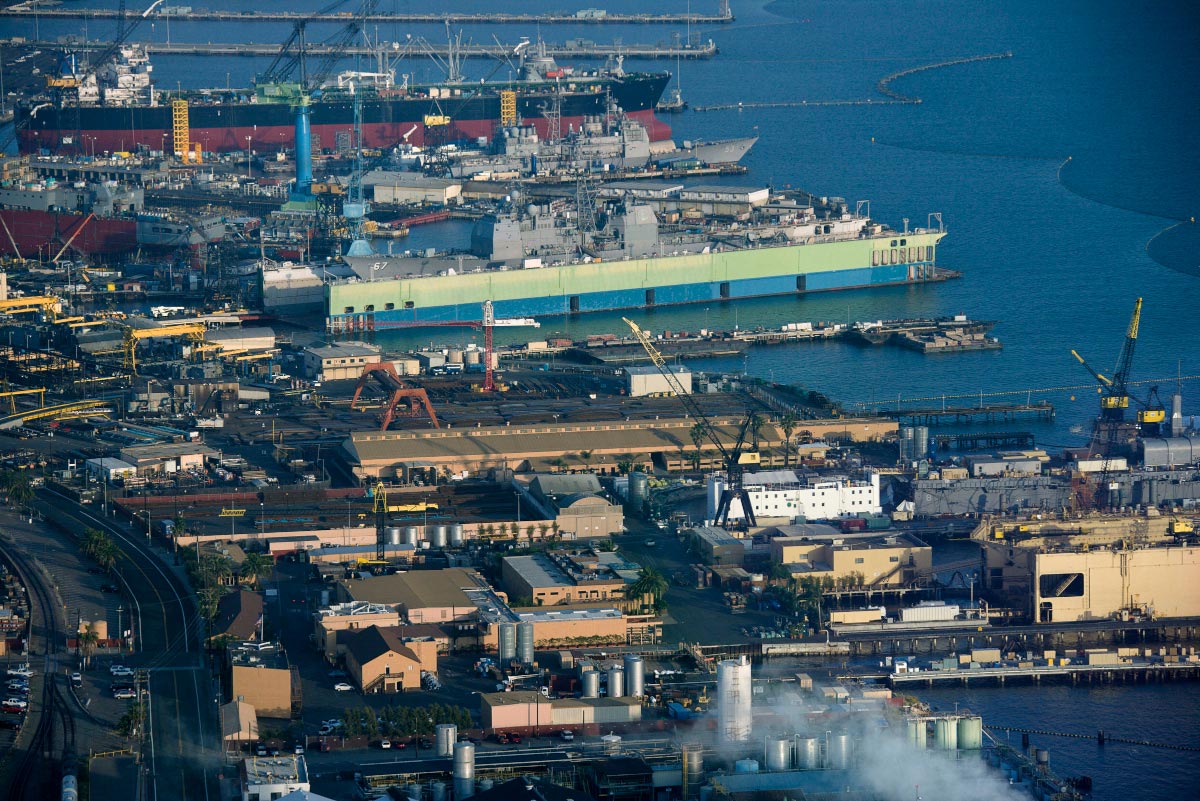 Parler
Parler Gab
Gab
Prices are increasing so start prepping today
The prices of various food supplies and grocery store items keep increasing as the months go by and now is not the time to remain complacent. Stop listening to mainstream media and take stock of your supplies. Make a list of things you need and stock up now before it's too late. Despite the government and mainstream media promising an eventual return to normal life before the pandemic, store prices suggest otherwise. Kirsten Gjesdal, the owner of Carrot Seed Kitchen, a kitchen supply store in Brookings, South Dakota, experienced firsthand how hard it is to get hold of supplies for her store during the pandemic. (Related: Start prepping now: Skyrocketing store prices hint at impending food shortages.) Gjesdal also experienced late deliveries. She recently received a pot lid that she ordered eight months earlier. She's also now used to paying surcharges to cover the increasing shipping costs of the items she buys. The store owner shared that she's accepted the fact that things aren't going back to normal, already placing orders for Christmas items like wreaths and baking pans in anticipation of the delays in deliveries. Gjesdal is only one of many business owners suffering because of the chaos caused by the pandemic. The pandemic also continues to affect manufacturers and the shipping industry.Computer chip shortages and limited operations
In August, Toyota announced that it would cut its global production of cars by 40 percent because of the ongoing shortage of computer chips. Other factories across the globe have also been forced to limit operations even though there is great demand for their products because they can't purchase metal parts, plastics and other raw materials. Meanwhile, construction companies have no choice but to pay more for hardware, lumber and paint that takes weeks and sometimes months to arrive. In Britain, the National Health Service (NHS) recently announced that it has to delay some blood tests because of the shortage of essential gear. Central banks from America to Australia debate the appropriate level of concern about inflation and no one knows the definite answer to an important question: Are the shortages and delays temporary obstacles that should be expected amid the resumption of business, or is the problem something more serious that can continue until 2022? Adam S. Posen, a former member of the Bank of England’s monetary policy committee and now the president of the Peterson Institute for International Economics in Washington, warned that things remain uncertain months after the pandemic first began. Posen added that normalcy could be "another year or two" away."Turmoil in international commerce"
In March of this year, global shipping prices skyrocketed and various goods became scarce. People assumed that the issue was mostly caused by a surplus of orders that reflected significant shifts in demand. Shoppers in America and other wealthy countries took advantage of pandemic lockdowns and indulged in purchases like gaming consoles and exercise bikes, which then swamped the shipping industry with cargo and exhausted the supplies of components needed for more important items. Consumers also assumed that after several months, factories can catch with demand and that ships would work through the backlog. However, that wasn't the case. As the pandemic resulted in extended lockdowns in many countries, difficulties in international commerce went on longer than expected. Shortages and delays in some products also made it impossible to make others, further delaying shipments that have already been held up. A lot of companies also slashed their inventories in the last couple of years because of lean production to cut costs and boost profits. This left companies with a very slim margin for error. The whole world learned that despite the distances, economies were interconnected and delays and shortages in one place have a domino effect.Prepare for the worst, warns experts
An unexpected increase in orders for televisions in Canada or Japan can worsen the shortage of computer chips, with auto manufacturers forced to slow production lines in Brazil, Germany and all the way to South Korea. Alan Holland, chief executive of Keelvar, a company in Cork, Ireland, that makes software used to manage supply chains, warns that the supply issue won't be ending any time soon. "Everybody should be assuming we are going to have an extended period of disruptions," advised Holland. The problem with the global economy can be traced to a major factor: Shipping. During the lockdowns, American shoppers started buying more treadmills to make home gyms and mixers for their kitchens. This then generated extra demand for Chinese-made factory goods. Additionally, millions of shipping containers essential for sea cargo were also being deployed all over the world to deliver protective equipment like face masks. The container shortages were also aggravated by delays in unloading cargo at American ports as workers stayed at home to prevent the further spread of the coronavirus. Some trade experts believe that product shortages are also being worsened by the increased demand for essential goods, like toilet paper. When there was a shortage of various items early in the pandemic, consumers and businesses have to order more and earlier than previously needed. Before the pandemic, the peak demand for trans-Pacific shipping was slated for late summer and ends in the winter, after the holiday season products are stocked. However, last winter the peak season never ended. It also merged with the rush for this holiday season, putting more pressure on factories, warehouses, ships and trucks. Willy C. Shih, an international trade expert at Harvard Business School, said that the problem is made worse because of the "vicious cycle of all the natural human instincts responding. " Shih warned that the problem won't be resolved, at least until 2022. Where does this leave preppers and non-preppers? If you want to survive when SHTF, keep prepping. Stock up on food supplies whenever you can and don't waste time waiting for prices to go down. If this goes on, eventually grocery stores across American will eventually run out of stocks. Visit Collapse.news for more tips on how to prepare before SHTF. Sources include: SHTFPlan.com SeattleTimes.comDeborah Birx hid covid info from Trump, altered CDC guidelines without approval
By Ethan Huff // Share
By Mary Villareal // Share
Americans lining up outside food banks as record inflation continues
By Belle Carter // Share
Diminished US refining capacity from facility closures contributing to soaring gas prices
By Belle Carter // Share
Port of Los Angeles director: US supply chain at risk if rail service does not improve
By Mary Villareal // Share





